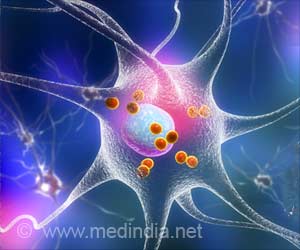Childbirth may not increase the risk of relapse of multiple sclerosis (MS). Women can safely undergo pregnancy, breastfeed their babies and deterioration.
- Post pregnancy period does not increase the risk of relapse of multiple sclerosis or cause a deterioration in the condition as currently believed according to this latest study
- Most patients have the relapsing and remitting form of the disease where the symptoms settle down for a period and then suddenly flare up. The condition is common in women in the reproductive age
- Women can safely undergo pregnancy, breastfeed their babies and resume treatment after delivery without increased risk of worsening of symptoms and deterioration
Annette Langer-Gould, MD, Ph.D., of Kaiser Permanente, the study author said: "These results are exciting, as MS is more common among women of childbearing age than in any other group. This shows us that women with MS today can have children, breastfeed and resume their treatment without experiencing an increased risk of relapses during the postpartum period."
Read More..
Does Childbirth Increase Risk of Multiple Sclerosis Relapse
Until now it was believed that multiple sclerosis symptoms deteriorate after childbirth. The study team hoped to determine if this information that was put forth 20 years ago is still valid in the modern scenario where disease-modifying treatments have become available and MRI scans can diagnose multiple sclerosis in the very early stages before it can progress.- The study team went through all patient records from Kaiser Permanente Southern and Northern California databases and found 375 women with MS accounting for 466 pregnancies from 2008 to 2016.
- They surveyed the women for more information about treatment history, pregnancy details, breastfeeding and episodes of remission and relapse
- Of the 375 women, 38 percent reported not receiving any treatment for MS in the year prior to becoming pregnant.
- A total of 15 percent just had the clinically isolated syndrome, which is the first occurrence of MS symptoms when they became pregnant
- A small proportion of the women (8%) had a relapse during pregnancy.
- Following delivery, 26 percent of the women had a flare-up, 87 percent breastfed their babies of which 35 percent breastfed exclusively.
- 41 percent of participants resumed taking their disease-modifying treatments after delivery
- Before pregnancy, the yearly relapse rate was 0.39, which fell to 0.07 to 0.14 during pregnancy.
- After birth, the symptoms did not worsen more, showing a rate in the first three months after the birth of 0.27, slightly less than pre-pregnancy relapse rates
- By four to six months after delivery, the relapse rate had returned to the pre-pregnancy baseline level of 0.37
Interestingly, breastfeeding the baby appeared to be beneficial in reducing the risk of Multiple Sclerosis relapse.
- Women who breastfed their babies on their milk exclusively for the first two months had a 40% lower risk of relapse compared to women who did not breastfeed.
- Of the 167 women who breastfed exclusively, 67 resumed disease-modifying agents while they were breastfeeding
- Restarting moderately effective disease-modifying agents such as interferon-betas and glatiramer acetate did not influence the rate of relapse
- Women who gave formula in addition to breast milk within two months after delivery appeared to have a similar risk of relapse as women who never breastfed
Future Plans
Further studies need to be conducted to further analyze the subgroup of women with severe relapses related to cessation of treatment such as natalizumab or fingolimod that they were taking prior to pregnancy.Summary
The period immediately after delivery in women with multiple sclerosis does not increase the risk of relapse of the condition. Women with MS can have babies, breastfeed them and restart their medications after childbirth.Reference:
- Good news for women with ms: Disease may not worsen after pregnancy after all - (https://www.aan.com/PressRoom/Home/PressRelease/2703)
Source-Medindia
















